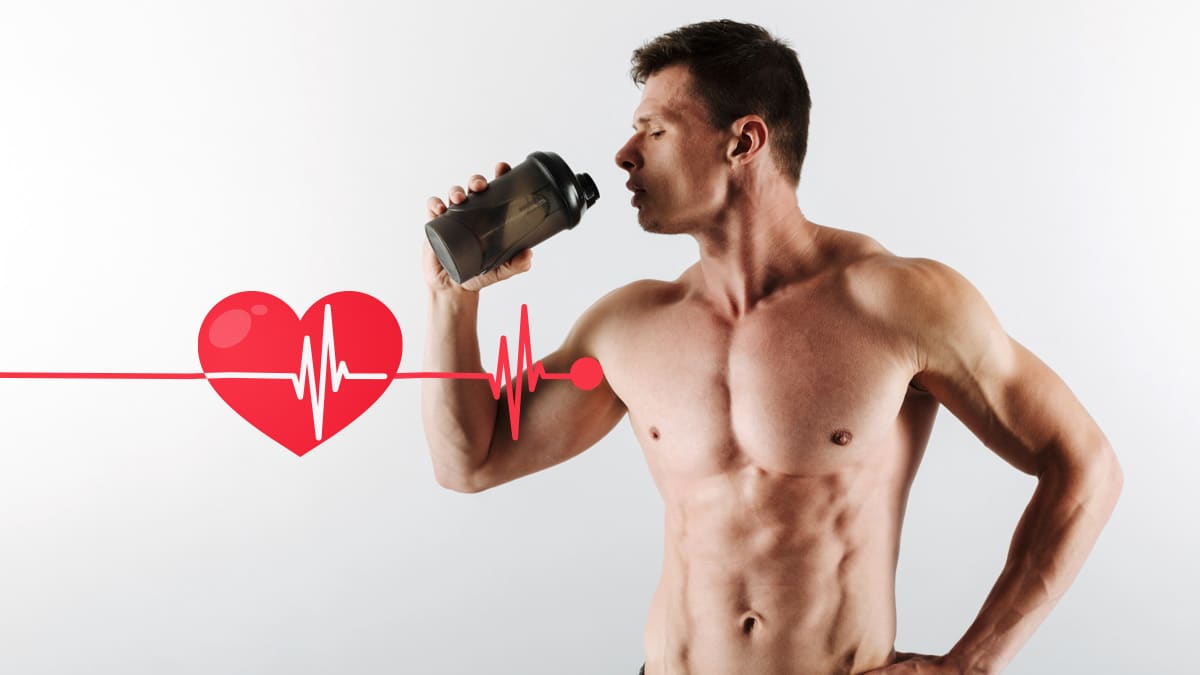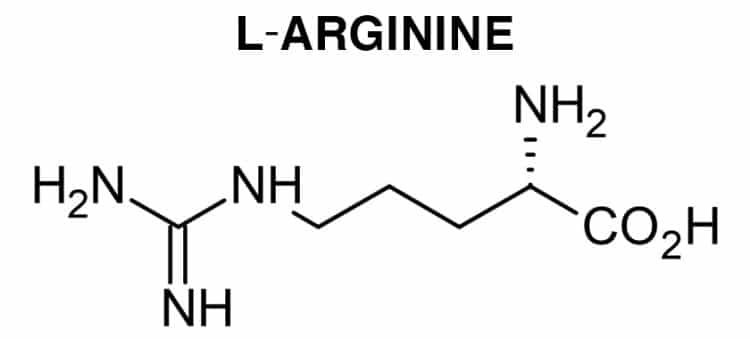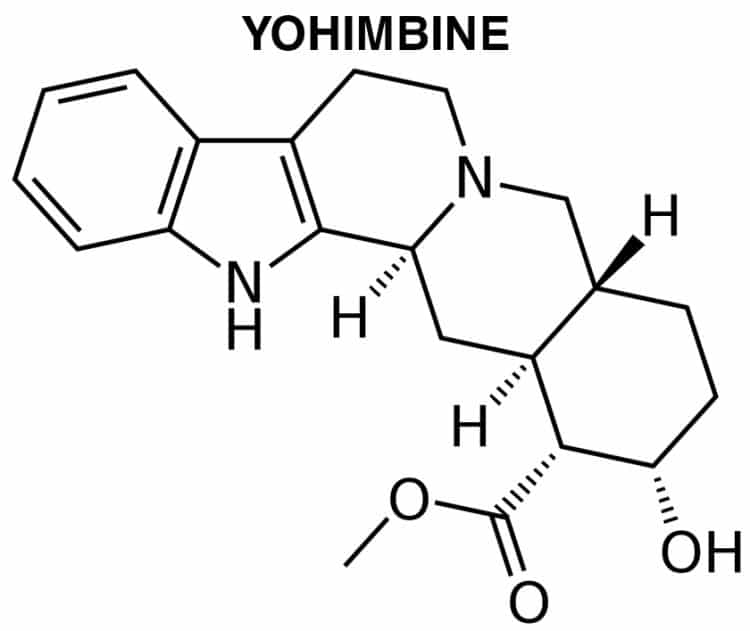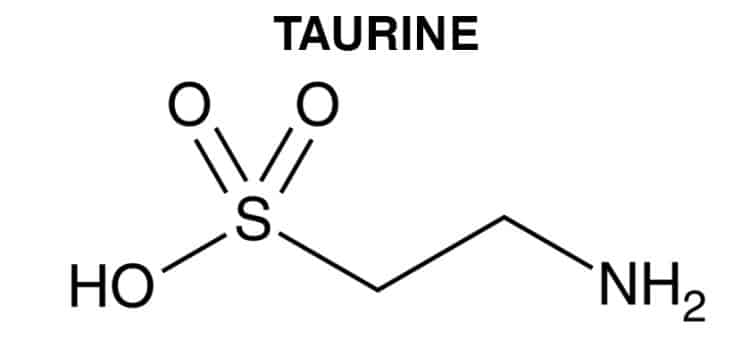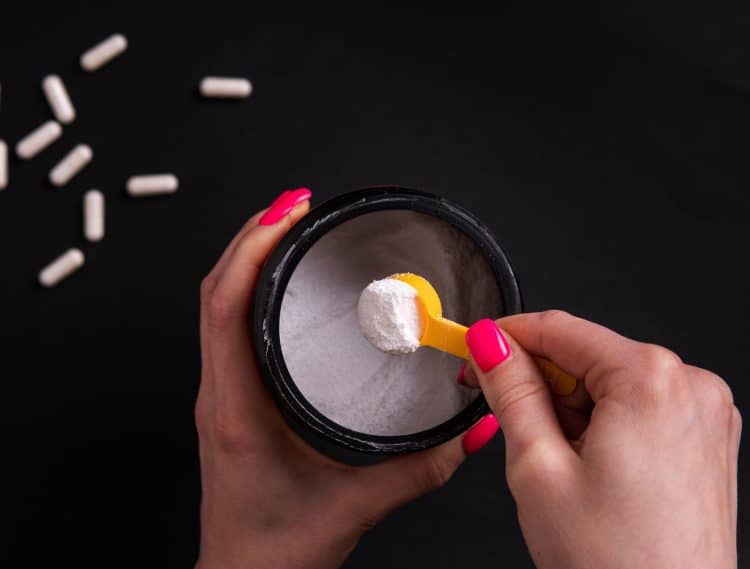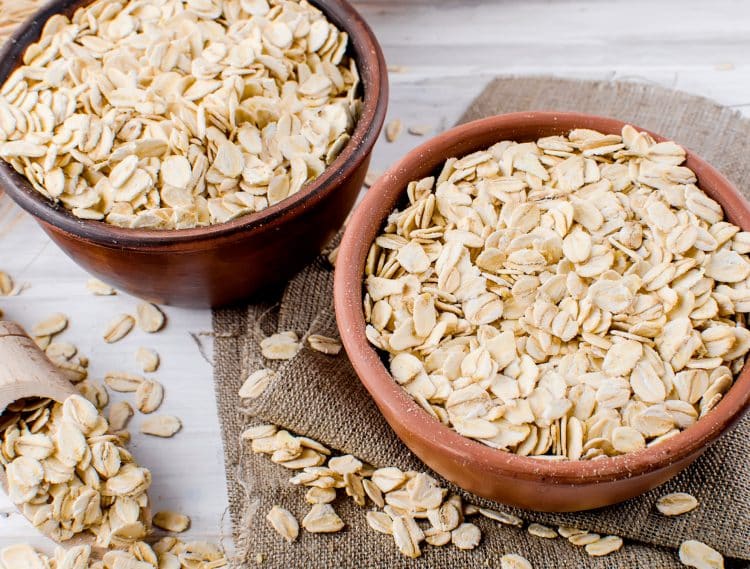If you are a serious lifter, you probably have pre-training rituals without which you do not enter the gym. Pre-workout supplements are a mainstay in most of these pre-training routines.
However, pre-workout supps routinely find themselves in hot water for their alleged heart-related side effects. Many people believe pre-workouts can cause blood vessel spasms, fast heart rate, and high blood pressure.
The Food and Drug Administration (FDA) does not regulate dietary supplements, meaning sports nutrition companies can push the envelope with little to no interference from government agencies. Some companies use this opportunity to spike their products with more than recommended doses of ingredients to boost results. Furthermore, some supplements also contain unlisted or banned ingredients.
Pro Tip: You should be especially critical while dealing with supplements that hide their ingredient list and dosages behind a proprietary formula.
Most pre-workout supplements go heavy on caffeine for improved physical performance. Caffeine is a vasoconstrictor, meaning it tightens blood vessels and reduces blood flow to muscles. It’s also a diuretic, which can increase your visits to the loo and cause dehydration.
This article discusses everything you need to know about pre-workout use, dry scooping, how they work, their side effects, ingredients that can put your heart health in jeopardy, and effective pre-workout supp alternatives.
How Does a Pre-Workout Supplement Work?
Pre-workouts help boost workout performance by giving you an energy boost, enhancing your metabolism, improving focus, and delivering better muscle pumps. Some pre-workout supps also provide other benefits but most stick with these four effects.
Most pre-workout supps contain a heavy dose of caffeine and other stimulants to achieve the promised results. Different people react to these stimulants differently. While a lifter might not feel a thing even after taking the recommended supplement dose, others might feel overwhelmed on a half dose.
Pre-workout supps boost blood flow throughout your body and raise your heart rate during training. The blood carries oxygen and nutrients to your cells, which help you push harder and for longer.
However, here lies the caveat. Physical exercise boosts your heart rate, and many believe that the pulse-boosting characteristic of pre-workout supps can put your heart under undue stress.
A 2019 study found that 54 percent of participants who regularly consumed pre-workout reported side effects, including nausea, skin reactions, and heart abnormalities. Notably, the research adds these side effects are more common in people who routinely consume more than the recommended serving size of a pre-workout supp. [1]
Pre-Workout Ingredients and Their Effects on Your Heart Health
Pre-workout supps can be complicated. Reading through the ingredient list can low-key make you feel like Walter White from Breaking Bad. If you want to set up an underground pre-workout lab or want to scan for compounds that can affect your circulatory system, you should look out for the following ingredients:
1. Caffeine
Caffeine is a stimulant that increases activity in your brain and nervous system. A caffeine overdose can cause tremors, seizures, headaches, coma, respiratory failure, and heart attack.
Per a 2018 study, drinking more than three cups of coffee per day is associated with higher rates of heart attacks in males. [2]
Three cups of coffee contain about 276 milligrams of caffeine. Notably, a 2018 study concluded that most pre-workout supplements contained between 91-387mg of caffeine per serving. [3]
If you prefer a stimulant-loaded pre-workout, choose a supp that contains less than 250 milligrams of caffeine per serving or lower the supplement’s dose.
You should track your daily caffeine intake while taking a pre-workout supplement, especially if you are a tea or coffee connoisseur and like drinking multiple cups of your favorite beverage throughout the day. Ensuring you do not consume more than 400 grams of caffeine a day lowers your risk of heart and breathing problems and insomnia.
2. L-Citrulline
L-citrulline is fast gaining popularity in fitness circles. It is an amino acid found in watermelons. It is also made in the body and can help improve blood flow and reduce blood pressure. [4]
Supplementing with citrulline can reduce fatigue, increase power output, and improve endurance in aerobic and anaerobic exercises.
L-citrulline might affect blood pressure. People on blood pressure medication should consult their doctors before beginning l-citrulline supplementation.
Read also: Best Citrulline Supplements Reviewed
3. L-Arginine
L-arginine is an amino acid naturally found in red meat, poultry, fish, and dairy. It is necessary for making proteins and is commonly used for improving blood circulation.
L-arginine is one of the three dietary amino acids in the urea cycle (the other two are citrulline and l-ornithine. The body changes l-citrulline into l-arginine.
L-arginine is the precursor of nitric oxide, which helps achieve vascularity and better muscle pumps by improving blood flow to muscles. It also stimulates the release of growth hormones, insulin, and other substances in the body. Furthermore, greater amounts of nitric oxide can improve circulatory health and muscle function and reduce fatigue. [5]
However, like l-citrulline, arginine can cause a drop in blood pressure if not used in moderation.
A study concluded that supplementing with l-arginine might increase the risk of death after a heart attack in the elderly. You should avoid arginine if you are dealing with heart issues. [6]
4. Yohimbine
Yohimbine is a relatively newer ingredient used in pre-workout supplements. It is derived from the Yohimbe tree — an evergreen tree in Africa.
Yohimbine is a vasodilator and helps increase blood flow throughout your body. It is famous for its ability to increase blood flow and nerve impulses to the sexual organs in men and women. Yohimbine was initially used to treat sexual problems but has now founds its way into sports supplements.
Yohimbine, a chemical in Yohimbe, has been linked to severe side effects, including irregular heartbeat and heart attack. Experts recommend avoiding supplements with this ingredient if you are dealing with heart problems.
Although more and more companies are using yohimbine in their pre-workout formula, there is still no scientific evidence to prove its effectiveness in boosting physical performance.
Read also: Best Yohimbine Supplements Reviewed
5. Taurine
Taurine occurs naturally in the human body. It can also be sourced through meat, fish, and eggs. It can improve athletic performance by delaying fatigue, allowing athletes to push harder and for longer.
Taurine might also benefit people with a risk of heart failure by lowering blood pressure and calming the nervous system. However, going overboard with taurine can crash your blood pressure levels, hampering your overall health. [7]
Is Dry Scooping Pre-Workouts Bad For Your Heart?
If you are active on social media, you’ve probably seen people dry scoop their supplements, including protein powders, creatine, and pre-workouts.
Dry scooping involves dumping the supplement powder into your mouth without mixing it in water or a beverage. This trend assumes that the concentrated dose of a pre-workout supplement enhances its effects and works its magic faster than mixing it in water.
Furthermore, many social media influencers mislead their followers by dry scooping a pre-workout with energy drinks or alcohol. Steer clear of such practices if you want to lower the risk of heart attacks.
Some fitness influencers like the late Rich Piana even went a step ahead and preferred to snort his pre-workout as he believed this method improved the supplement’s effects.
In the latter half of 2021, a 20-year-old female TikToker lost her life after dry scooping a pre-workout supplement. A few hours after downing the pre-workout supplement, the fitness influencer experienced chest pain, eventually leading to her left side going numb. It wasn’t long after that she experienced a fatal heart attack.
Besides heart attacks, dry scooping pre-workout can also cause choking and breathing problems.
Notably, there is no scientific evidence to prove that dry scooping is more effective than taking your supplements mixed in water. However, the dry scooping accidents prove that the risk is not worth the reward.
Experts recommend staying away from such demented methods of consuming your supplements. You should stick to the supplement dosages and directions mentioned by the manufacturer on the supplement container to ensure safety and optimal results.
Pre-Workout Supplement Alternatives For Better Heart Health
Most pre-workout supplements are sold as some kind of magic potion that will help you build a Greek god-like physique. However, most of these products do nothing more than flood your system with sugar, caffeine, and other stimulants.
Here are six healthy and heart-friendly pre-workout alternatives that will deliver the nutrients you need to crush your workouts:
1. Green Tea
We know what you’re thinking. We’ve been raising our fingers at caffeine for its heart health-deteriorating effects, and the first heart-friendly alternative to pre-workout on this list is green tea. We get the irony but hear us out.
Green tea is proven to help lower your risk of cardiovascular disease. It does so by lowering LDL cholesterol and triglycerides, which may be responsible for the tea’s association with reduced risk of death from heart disease and stroke. Nonetheless, you should not drink more than 3-4 cups of green tea a day.
2. Yogurt
A 2016 study found that regular yogurt consumption kept blood pressure in women under control. The healthy amount of potassium in yogurt helps flush salt from your body to keep your blood pressure in check.
3. Beetroot
If you’re a sucker for muscle-ripping pumps during training and rely on l-citrulline or l-arginine for muscle pumps, you should rather switch to beetroot juice.
Drinking beet juice before a workout increases nitric oxide levels in your body. Research shows nitric oxide can boost blood flow, strengthen muscle contraction, and improve muscular endurance.
4. Oatmeal
Oatmeal is a popular breakfast option for fitness enthusiasts. However, only a handful of people know about its heart health-boosting characteristics.
Extensive studies have associated oats and oatmeal with many heart-healthy benefits, such as lowering cholesterol (both total and LDL cholesterol) and helping with weight control. [8]
The soluble fiber in oats can help lower cholesterol absorption, which prevents fat from clogging your arteries and allows blood to reach your extremities.
5. Peanut Butter
Peanut butter contains omega-6 — a fatty acid that lowers bad (LDL) cholesterol and increases protective (HDL) cholesterol. Plus, peanut butter is a natural source of arginine, which can help deliver nastier muscle pumps and prevent heart and vascular disease by promoting good blood vessel function.
6. Banana
Banana is packed with potassium — an important electrolyte that can help regulate your body’s fluid balance. It helps prevent water retention and fluid build-up in the body by moderating salt levels in your body.
Replace your pre-workout supplement drink with one of these six pre-workout foods/beverages to ensure better heart health. Even better, you could combine 2-3 foods mentioned in this list if you train after breakfast or lunch.
When To Contact a Doctor?
You should always consult your doctor before taking a pre-workout or other dietary supplement, especially if you are dealing with an underlying medical condition.
People dealing with heart or lung issues should also ensure the ingredients in the pre-workout supplement don’t interfere with their medication.
Consuming too much caffeine at once can cause anxiety, dizziness, nervousness, irritability, and nausea. Furthermore, too big a caffeine dose can cause serious side effects like vomiting, abdominal pain, disorders in heart rhythm, and seizures. You should rush to a healthcare facility if you experience any of these side effects after taking a pre-workout supplement.
Frequently Asked Questions
What does a pre-workout supplement do?
A pre-workout gives you an energy boost, enhances metabolism, improves focus, and delivers better muscle pumps. A pre-training supp usually has a different ingredient for every function. You should read through the ingredient list before purchasing to ensure the supp doesn’t interfere with your medical condition — if any.
How long does the effect of a pre-workout last?
The effects of a pre-workout supp depend on its ingredients and their dosages. For example, if a supp has 200mg of caffeine, you might experience an energy boost up to two hours after taking it.
Is a pre-workout supplement bad for your heart health?
No two pre-training supps are made the same. You should check a product’s ingredients list for one of the five ingredients mentioned above if you are worried about your heart health.
Wrapping Up
Supplementing with pre-workouts is no joke. People with existing heart conditions should consult their doctors before taking a pre-workout supp that contains caffeine, l-citrulline, l-arginine, taurine, or yohimbine. Furthermore, you should keep an eye out on your overall daily caffeine consumption to ensure you are not at risk of heart issues.
Finally, if you think the side effects that come with stimulant-laced pre-workouts aren’t worth the reward, you could try one of the pre-workout alternatives mentioned above.
References
Fitness Volt is committed to providing our readers with science-based information. We use only credible and peer-reviewed sources to support the information we share in our articles.
- Jagim AR, Camic CL, Harty PS. Common Habits, Adverse Events, and Opinions Regarding Pre-Workout Supplement Use Among Regular Consumers. Nutrients. 2019; 11(4):855. https://doi.org/10.3390/nu11040855
- Mo L, Xie W, Pu X, Ouyang D. Coffee consumption and risk of myocardial infarction: a dose-response meta-analysis of observational studies. Oncotarget. 2018 Jan 4;9(30):21530-21540. doi: 10.18632/oncotarget.23947. PMID: 29765557; PMCID: PMC5940396.
- Desbrow B, Hall S, O’Connor H, Slater G, Barnes K, Grant G. Caffeine content of pre-workout supplements commonly used by Australian consumers. Drug Test Anal. 2019 Mar;11(3):523-529. doi: 10.1002/dta.2501. Epub 2018 Oct 3. PMID: 30196576.
- Suzuki I, Sakuraba K, Horiike T, Kishi T, Yabe J, Suzuki T, Morita M, Nishimura A, Suzuki Y. A combination of oral L-citrulline and L-arginine improved 10-min full-power cycling test performance in male collegiate soccer players: a randomized crossover trial. Eur J Appl Physiol. 2019 May;119(5):1075-1084. doi: 10.1007/s00421-019-04097-7. Epub 2019 Feb 16. PMID: 30847640; PMCID: PMC6469824.
- Stuehr DJ. Enzymes of the L-arginine to nitric oxide pathway. J Nutr. 2004 Oct;134(10 Suppl):2748S-2751S; discussion 2765S-2767S. doi: 10.1093/jn/134.10.2748S. PMID: 15465779.
- Schulman SP, Becker LC, Kass DA, et al. L-Arginine Therapy in Acute Myocardial Infarction: The Vascular Interaction With Age in Myocardial Infarction (VINTAGE MI) Randomized Clinical Trial. JAMA. 2006;295(1):58–64. doi:10.1001/jama.295.1.58
- Taurine Supplementation Lowers Blood Pressure and Improves Vascular Function in Prehypertension Qianqian Sun, Bin Wang, Yingsha Li, Fang Sun, Peng Li, Weijie Xia, Xunmei Zhou, Qiang Li, Xiaojing Wang, Jing Chen, Xiangru Zeng, Zhigang Zhao, Hongbo He, Daoyan Liu, and Zhiming Zhu
- Llanaj E, Dejanovic GM, Valido E, Bano A, Gamba M, Kastrati L, Minder B, Stojic S, Voortman T, Marques-Vidal P, Stoyanov J, Metzger B, Glisic M, Kern H, Muka T. Effect of oat supplementation interventions on cardiovascular disease risk markers: a systematic review and meta-analysis of randomized controlled trials. Eur J Nutr. 2022 Jun;61(4):1749-1778. doi: 10.1007/s00394-021-02763-1. Epub 2022 Jan 3. PMID: 34977959.
Tip: If you're signed in to Google, tap Follow.


